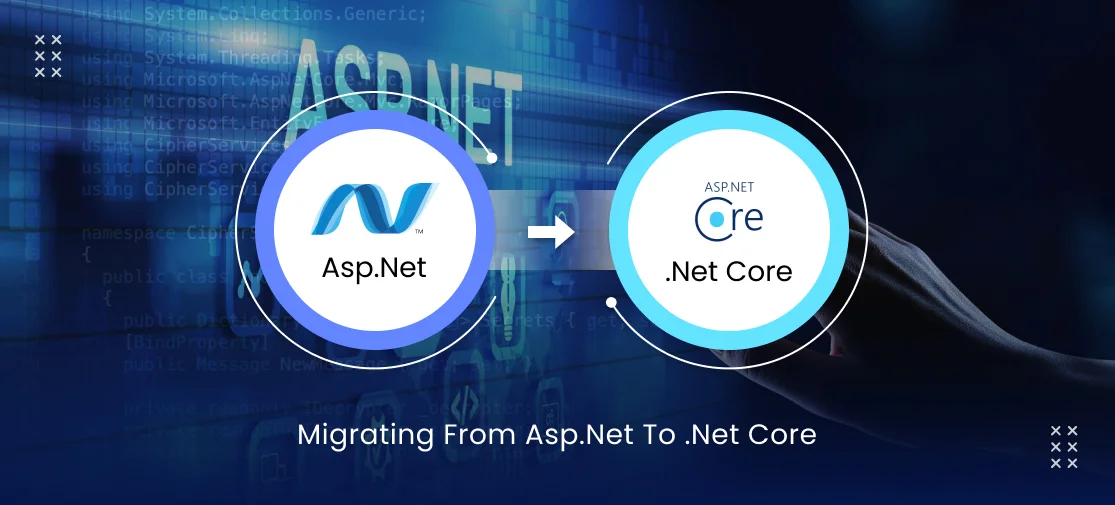Introduction
Asp.Net is the framework that is mostly used by every web developer to create a robust website accessible on every platform for its users. Asp.Net has always been the first priority for every web developer when it comes to creating a dynamic web page on a flexible platform. But the question arises as to why every web developer prefers Net core over Asp.Net?
Before answering the above question we need to know about these frameworks and how they are different from each other.
What is asp.net framework?
In simple words, it can be said that it's an open-source server-side web application framework developed by Microsoft which is also known as Active Server Pages Network Enabled Technologies. Which allows the developer to build dynamic websites, applications, and services for the organization.
Features offered by asp.net
With each release new and enhanced capabilities and features are introduced allowing you to accomplish your web application with an improvised performance. The features can be described as
- High performance: It's considered one of the fastest and most responsive frameworks currently available. For being more lightweight and responsive you also get the benefit of asynchronous programming approaches. Whereas other languages like Java, PHP, and Python use interpreters.
- Support for cross-platform: The name clearly explains the web page created on these frameworks is quite flexible to run on any platform. From Windows to Linux it performs flawlessly on it.
- Filters for taking action: It allows the creation of error handling, authorization, storing data, and other logic that the user would like to include in its web application.
- Security: Provides a highly secured feature as each application has its unique identification making it safe and secure from spammers.
So, there is no doubt that Asp.Net is considered the best framework for your Web development. But the question still remains the same for .Net Core. So, let's dive deep to know what is .Net Core.
“Also Read: .NET technology: why you should choose!!”
What is .net core framework?
You can say it's just an update of Asp.Net which is a free open-source computer software. Being a cross-platform it makes it flexible to work flawlessly on any platform. As it's a successor of asp.Net there will be some minor updates such as
- Innovatively advanced: Allows you to develop runtime components and compilers without stopping the application, by which you can access various versions on the same server.
- More secure: It's true that .Net Core is more secure from authentication, authorization mechanisms, data protection, and threat prevention. Moreover, you can securely develop more API by extending your business needs.
- Unified MVC: Asp.Net requires both MVC and API frameworks. Fortunately. Net Core has merged both frameworks making simplified web application development.
As advanced version developers prefer more on .Net core compared to Asp.Net as it offers more benefits while migrating from asp.Net to .Net core.
Benefits of migrating from asp.net to.net core
You can say .Net Core is never going to be an outdated version as the developer is willing to migrate more and more to .Net Core and here is the answer to it.
- Better scalability and efficiency: It offers the best performance and speed compared to other frameworks. Scaling is not a concern in Net Core because of the most cutting-edge architectural principles. This is due to the fact that it was created to manage applications that call for many technologies or microservices.
- Cross-platform apps: If we look at its earlier version the benefit of cross-platform wasn't supported. But, currently developing apps for Mac, Linux, and Windows platforms, IoT apps, and cloud-based applications are also possible with .Net Core.
- Quick and secure: Undoubtedly .Net Core is the perfect framework. The frameworks linked to clients can be easily integrated with its strong UI components, secure operations, regular updates, and the larger community. Moreover, with these features, you can create apps rapidly and deliver them to your organization without any delays.
So, here it clearly explains that .Net Core is the better version compared to Asp.Net. So now if you are willing to migrate from Asp.Net to .Net core you just need to follow these steps.
Migration steps from asp.net to .net core
So, here are some basic steps mentioned where you can easily migrate from Asp.Net to .Net Core.
Step 1:
The very first step we are going to follow is to migrate your project to Solution Explorer just by giving a right click on the project and selecting the option of migrating the project.
Step 2:
After the click, you will receive a pop message read as “ Migrate your ASP.NET project to ASP.NET Core a cross-platform, high-performance, open-source framework for building modern web apps” Just click on Start Migration.
Step 3:
Next, you will be given 2 options: New project and Existing Project. Select your convenient option.
Step 4:
After that, there will be 3 types of migration available: Controller, Classes, and View. You can use the link or just right-click on the item in the solution explorer to get your migration started.
Finally, now migration has started for a flexible and robust web application. But, it isn't over yet, there are some key points to be kept in mind while doing the migration process.
Things to be kept in mind
Every framework migration requires pre-planning and continuous monitoring by which you may not face issues while generating code.
- Try out smaller modules instead of moving the whole codebase to the .Net core.
- It doesn't track responses in a specific order.
- You need to create a cookie for each value as .Net Core does not support multiple cookie values.
As it's an advanced version of Asp.Net there are minor changes. Therefore, some of the key points have been mentioned.
Conclusion
So, the conclusion clearly explains that .Net Core is the only framework when it comes to better performance, speed, flexibility, modularity, and easy web development. Undoubtedly .Net Core proves to be a valuable asset that every organisation requires.




